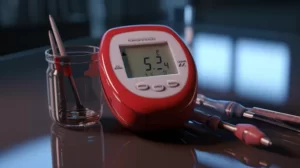“It was only the placebo effect.” You’ve probably heard those words coming out of the mouths of scientists and doctors. It’s as if the placebo effect is just a pesky barrier to their efforts to find real medicine. But “real medicine” these days often translate as big pharma, patents, prescriptions, and profits — everything that benefits the major stakeholders, but not you, the patient.
Despite what they’d have us believe, the placebo effect is powerful medicine in its own right, and it’s getting more powerful every day. Last year, researchers analyzed 23 years’ worth of clinical trials on pain medications, all of which used a placebo as a control. Their findings, which were published in the journal Pain, showed that 20 plus years ago, pain medications were 27 percent more effective than sugar pills at reducing pain. In 2013, they were only nine percent more effective. Solid evidence that the power of the placebo effect is growing? Maybe. But either way, it’s more scientific proof that your mind is an effective healer — almost as effective as prescription medicine, but without all the undesirable side effects.
Initiating the power of the placebo effect
The first step in initiating the power of the placebo effect in your body is to believe that it works. Did you know that the pain-reliever morphine is 50 percent less effective when people don’t know they’re receiving it? That’s the power of belief in reverse. People can’t believe in something they don’t know they’re getting.
A recent study published in the Journal of Behavioral Medicine showed that people who strongly believed exercise was good for them had lower levels of anxiety and were in a better mood after just one exercise session. It’s the perfect example of the self-fulfilling prophecy.
Promoting the power of belief
To promote the power of belief in your own mind, you should read scientific studies, articles, and books that support the healing powers of the modality you’re currently using. That will train your mind and body to truly believe in its power. Regardless of the method, the power of belief probably will work to your benefit.
Positive thinking and its impact on health
Call it the power of positive thinking or seeing the glass half full, but optimism does have a measurable impact on your health. A 2010 study showed that people with diabetic foot ulcers were less likely to heal in 24 weeks if they were depressed.
Earlier this year, researchers in Ireland also found that people who started out with more negative attitudes about aging had less mobility and poorer cognitive functioning than older adults with a positive perspective on aging at the end of a two-year study.
Research at the University of Exeter in England shows that your attitude also has a significant impact on your vulnerability to dementia.
Now, if you’re a natural-born pessimist, positive thinking may not come easy. But you can train your brain to think more positively. One way to do that is to practice these five proven gratitude practices that make your life better.
Guided imagery in mainstream medicine
The use of guided imagery is slowly making its way into mainstream medicine. Even the Mayo Clinic relies on guided imagery as an effective way to manage stress, get rid of headaches, reduce anxiety, decrease pain, and ease the side effects of conventional cancer treatment.
When you do a guided meditation, the vivid imagery goes directly into the emotional control center of your brain, which then sends it out to rest of your body. Guided imagery has been shown to have measurably positive effects on your endocrine system, immune system, and autonomous nervous system.
If you’d like to give it a try, this guided imagery meditation can get you started.



